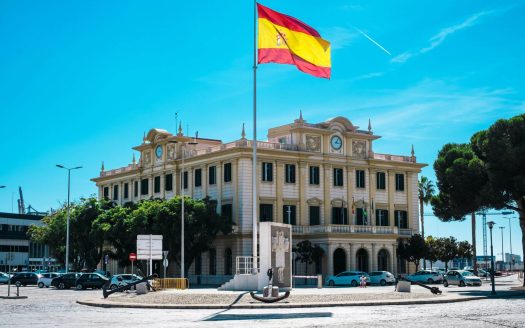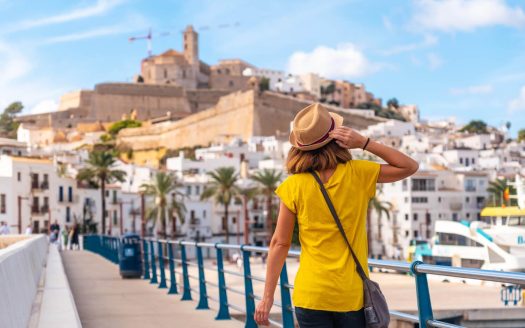The ultimate legal guide to buying a house in Spain

Legal Guide Real Estate Buying Spain: When buying a property in Spain, it is crucial to fully understand the legal implications. Spain has a unique legal system and set of laws that apply to real estate transactions. Before investing in real estate in this beautiful country, it is essential to familiarize yourself with the legal aspects to avoid problems using this legal guide.
It is advisable to hire an experienced lawyer who specializes in Spanish real estate law. They can guide you in navigating the complex laws and ensure that your interests are protected. Expert legal representation can help you avoid potential pitfalls and ensure a smooth transaction.
In addition, it is wise to familiarize yourself with the local laws and regulations that apply to the region where you are considering buying a property. Each autonomous region in Spain has its own rules and regulations, making it crucial to be aware of the specific requirements for your intended location.
The importance of legal research in real estate
Before buying real estate in Spain, it is crucial to thoroughly research the legal ownership situation of the property. An accurate check of the title, any mortgages or taxes on the property can protect you from unexpected problems in the future.
A detailed property audit can be conducted by a specialized legal service provider or a professional real estate agent. They have access to the necessary records and can trace the full history of the property, including any legal disputes or claims. Although this is less applicable with new construction, it is also advisable to check building permits and planning documents to ensure that the property is built legally and complies with all applicable regulations. Illegal construction or expansion can result in significant fines or even the demolition of the property.
Check the property title
Research any mortgages or taxes
Verify building permits and planning documents
By conducting a thorough due diligence, you can invest in real estate in Spain with confidence, knowing that you are fully aware of the legal status of the property. Again, a specialized lawyer can save you a lot of time and trouble.
Own money versus borrowing when buying a house in Spain
When buying a property in Spain, you have a choice between using your own money or borrowing a mortgage. Both options have advantages and disadvantages, and your personal financial situation will determine which option is most suitable. In this legal guide, we discuss the differences:
Use of own money
Using your own money to purchase a property in Spain offers several advantages:
You avoid the extra costs of a mortgage, such as interest and closing costs.
You have full ownership of the property without debt.
You can be more flexible regarding the sales price and negotiations.
On the other hand, using your own money requires a significant initial investment, which can limit your liquidity.
Borrowing a mortgage
Borrowing a mortgage is a popular option for many Spanish home buyers. The advantages are:
You don’t have to use up all your savings to make the purchase.
Monthly payments may be payable depending on the interest rate and term.
You may be able to enjoy tax benefits on mortgage interest.
The anti-money laundering procedure (which must prove that the origin of the funds is legitimate) may go more smoothly.
However, a mortgage also comes with additional costs, such as interest, closing costs and possibly a higher monthly expense. In addition, you remain bound by the terms of the loan until it is fully paid off and can only borrow up to 70% (i.e., at least 30% equity).
It is essential to carefully evaluate your financial situation and seek professional advice before making a decision about using your own money or borrowing a mortgage.
Important documents and contracts when buying a house in Spain
When buying a property in Spain, there are several crucial documents and contracts you need to consider. These documents protect your interests and ensure a safe and legal transaction. This legal guide gives an overview of the main documents:
Reservation contract: This contract serves as proof that the down payment (deposit) was paid for the property and also blocks the property for the buyer until the purchase agreement can be signed (once the anti-money laundering procedure has been completed and, in the case of new construction, if the construction license has already been obtained).
Purchase Agreement (Private Purchase Contract or Contrato de Compraventa): This is the main document that establishes the terms and details of the transaction, such as the purchase price, description of the property, payment terms and any special provisions. If you are buying with more than one person, the division will also be recorded in this document.
Title Deed (Escritura Pública): this official document confirms the transfer of ownership from the seller to the buyer and is registered at the Land Registry. This follows just before completion.
Note Simple: This is an extract from the property registry that contains information about the owner, description of the property, any mortgages or encumbrances, and other relevant details. This document is basically only reviewed by the lawyer and does not need to be signed.
Energy Certificate (Certificado Energético): This mandatory document provides information on the energy performance of the property and is required for the sale or rental of homes in Spain.
Tax documents: Depending on your situation, various tax documents may be required, such as the payment of transfer tax (Impuesto de Transmisiones Patrimoniales) or VAT (IVA) for newly built homes.
It is crucial to carefully review and understand all of these documents before signing. An experienced attorney or broker can guide you in interpreting the contracts and ensure that your interests are fully protected. Contracts are also reviewed for any clerical errors along the developer’s side. For example, you do not want to sign a contract for the wrong unit within a new construction complex or for a smaller parking space or storage unit than you are paying for.
The role of a notary and lawyer when buying a house in Spain
In Spain, the notary plays a different role in real estate transactions than in, say, Belgium or the Netherlands. For example, a notary does not defend the interests of the buyer there. This is done, as indicated above, by the lawyer.
During the process of buying a property in Spain, the lawyer has the following duties:
Verification of documents: The lawyer verifies all relevant documents, such as the note simple, title deed, purchase agreement, tax documents, etc., to ensure that everything is in order and the buyer is fully aware of what he/she is signing for.
Advising the client: The lawyer advises the client on their rights and obligations, and ensures that they are also fully aware of the legal implications of the transaction.
Serve as an intermediary: A good lawyer (along with the broker) conducts communication directly with the developer in order to unburden the client and “charge” only for the much-needed such as requesting the info and documents for the anti-money laundering procedure.
In Spain, the notary has a rather passive, neutral role. He checks that documents are valid and that payment is made correctly.
Taxes and (hidden) costs when buying a house in Spain
When buying a property in Spain, you must take into account various taxes and costs, hidden or otherwise. It is important to understand and budget for these in advance so that you do not have any unexpected expenses during the buying process. The total cost of buying property in Spain is usually between 10% and 13% of the purchase price excluding VAT.
VAT: Real estate in Spain is subject to 10% VAT on new construction and 6% on existing properties.
Legal fees: Engaging an independent property lawyer in Spain is necessary. The costs are around 1% of the purchase value excluding VAT.
Bank fees: Spanish banks may charge fees for receiving and transferring funds after the transfer of the property. These bank fees can be substantial. So choose a bank that charges no, or as few, fees as possible.
Stamp duty: A kind of administrative cost of 1% of the purchase price without VAT.
Mortgage repayments: If there is a mortgage on the property, the repayment terms of the mortgage must be agreed upon with the bank before the sale can be completed (try to avoid this by having your attorney research this).
Notary fees: The buyer usually pays the notary fees, although this can sometimes be negotiated. These fees depend on the value and complexity of the transaction, but range between 0.6%-1% of the purchase price.
Property Registry:The cost of registering the property is usually paid by the buyer and is usually between 0.5% and 0.75% of the sale price.A good real estate agent will not charge any fees, but will work entirely on commission. Also keep in mind that you will have to furnish the property after purchase.
It is wise to make a detailed estimate in advance of all the costs involved in the purchase of your property in Spain. This way you can avoid unpleasant financial surprises and enjoy a smooth and stress-free buying process.
The different types of property rights in Spain
In Spain, there are different types of property rights for real estate. It is important to understand what the different options entail and which one best suits your needs and situation. This legal provides an overview of this:
Full Ownership (Plena Propiedad): This is the most common form of ownership in Spain. As a full owner, you have all rights and responsibilities over the property.
Shared Ownership (Propiedad Horizontal): With shared ownership, you own an individual property within a larger complex or building, such as an apartment complex. The common areas and facilities are jointly managed and maintained by the owners.
Temporary ownership (Multipropiedad): This is a form of shared ownership where multiple parties own the same property, but each for a certain period of the year. This is often applied to vacation homes.
Leasehold (Derecho de Superficie): In ground lease, the owner of the property has an agreement with another party to grant the right to build and use a building on the land for a certain period of time, usually between 30 and 99 years.
Right of use (Usufructo): This gives a person the right to use a property and reap its benefits, but without owning full ownership. This right can be temporary or lifelong.
It is essential to fully understand the implications of each type of property right before making a decision. An experienced attorney or broker can advise you on the most appropriate option for your particular situation and needs.
Tips legal guide to buying property in Spain
Buying a property in Spain can be an exciting but also challenging experience. To ensure the process goes smoothly and you make an informed decision, we have some valuable tips for you:
Do your research: Thoroughly study the region where you are considering buying a home. Review factors such as local infrastructure, amenities, crime rates and future development plans.
Rent first before you buy: Consider renting in the area for a while before buying a home. This will give you a chance to get to know the area better and determine if it is the right place for you. If you only wish to rent out the property, this is less applicable.
Consider future costs: In addition to the purchase price, consider the ongoing costs of the property, such as maintenance, common charges (for apartments) and taxes.
Hire professional guidance: Hiring a trusted real estate agent and an experienced attorney can help you make the buying process go smoothly and avoid any legal or financial pitfalls.
Learn the language and culture: While not absolutely necessary, learning basic Spanish language skills and understanding the local culture can help you better integrate into your new environment.
By heeding these legal guide tips, you can invest in real estate in Spain with more confidence and knowledge, allowing you to enjoy the beautiful real estate and rich culture this country has to offer.
Investing in real estate in Spain: valuable information legal guide for every investor
For investors, the Spanish real estate market offers an attractive and lucrative investment opportunity. Here are some important considerations for investing in real estate in Spain:
Growing demand for rental properties: The Spanish rental market is on the rise, driven by growing demand from both domestic and foreign tenants. This offers investors the opportunity to benefit from stable rental income.
Tourist destinations: Regions with a thriving tourism industry, such as Spain’s coastal areas and the Balearic Islands, offer opportunities for investors to invest in vacation homes or apartments that can be rented out to tourists.
Favorable tax rules: Spain has relatively favorable tax rules for foreign investors, making it an attractive destination for real estate investment.
Diversify your portfolio: By investing in Spanish real estate, you can diversify your investment portfolio and take advantage of the potential value growth and rental income from another country.
Access to financing: Many Spanish banks and financial institutions offer mortgages and loans for the purchase of real estate, making it easier for investors to invest.
Growing cities and urban development: Cities such as Madrid, Barcelona and Valencia are attractive investment locations thanks to the growing economy, increasing population and urban development.
However, it is important to do your legal research thoroughly, understand local market conditions and seek professional advice before investing in Spanish real estate. Careful planning and analysis can pave the way to successful and profitable real estate investments in this beautiful country.
Conclusion of the legal guide: The main steps when buying a house in Spain
Buying a property in Spain can be an exciting and rewarding experience, but it requires careful planning and preparation (with the help of a legal guide). Here are the key steps you should take to ensure a smooth and successful buying process:
Do thorough research: Study the region where you are considering buying a home, including local infrastructure, amenities and future development plans.
Enlist professional help: Work with a trusted real estate agent and an experienced lawyer who specializes in Spanish real estate law. They can guide you through the complex process and protect your interests.
Delve into the legal aspects: Make sure you fully understand the legal implications and requirements, such as title, building permits and contracts.
Prepare your finances: Evaluate your financial situation and determine if you want to use your own money or a mortgage to purchase your home.
Budget for all expenses: Consider all taxes, legal and notary fees and other expenses involved in the purchase.
Understand the different property rights: Learn about the different types of property rights in Spain and choose the option that best suits your needs.
Integrate into the local community: Try to learn the Spanish language and culture to better integrate into your new environment.
By carefully following the steps in this legal guide and making the proper preparations, you can confidently invest in real estate in Spain and enjoy the many benefits this beautiful country has to offer.
Contact
Contact our experienced real estate specialists today for professional advice and guidance throughout the buying process. We are happy to help you realize your Spanish real estate dream and put you in touch with all the necessary (legal) parties involved in the purchase. Contact us now for a free consultation.












